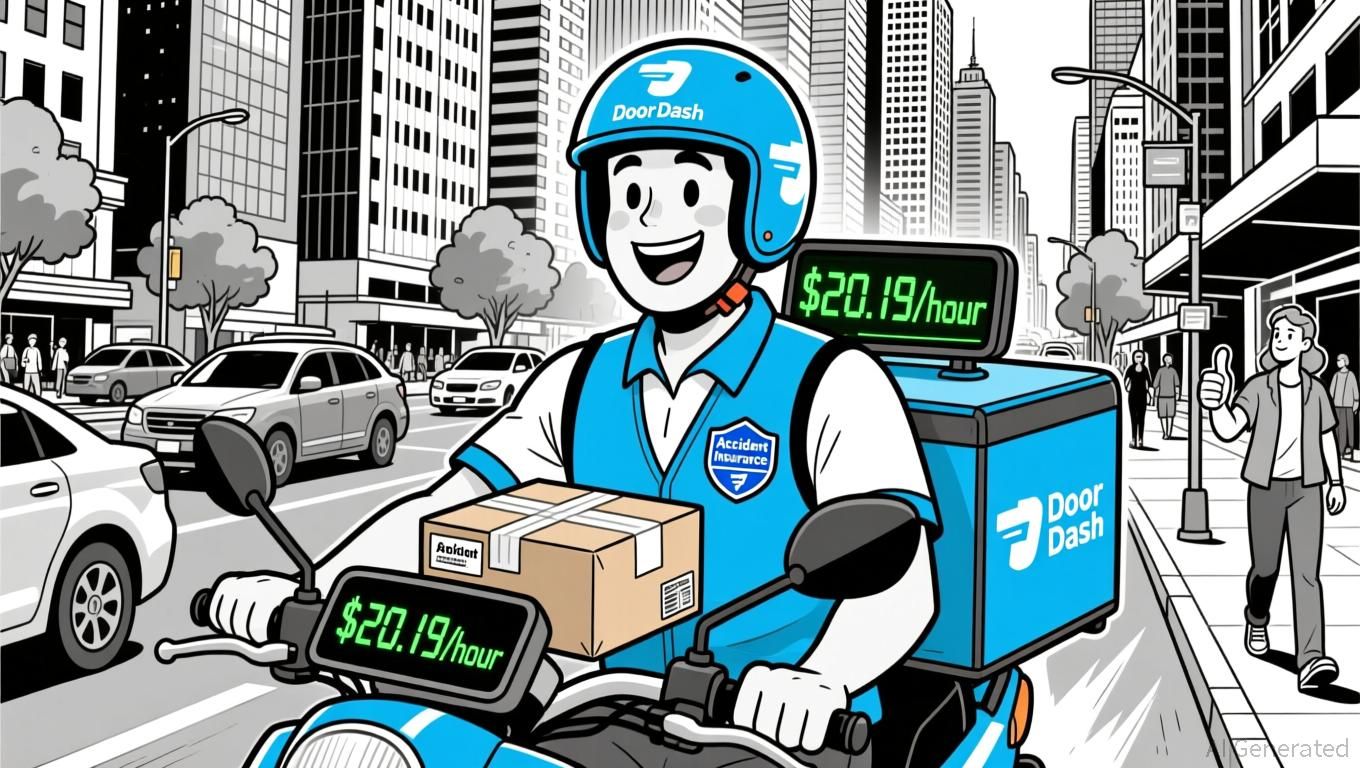Mono Protocol Sets Out to Transform Cross-Chain DeFi Infrastructure by 2025
- Mono Protocol's Stage 15 presale raised $2.8M of $3M target, offering 1011% profit potential at $0.500 launch price. - Project focuses on cross-chain interoperability, developer-first design, and Omnichain Paymaster for gas-free transactions. - Strategic partnerships with LI.F.I, Celestia, and Chainlink enhance scalability and data security in DeFi infrastructure. - Community incentives and October 30 audit highlight commitment to transparency, positioning Mono as a 2025 DeFi innovation leader.
Mono Protocol's development has drawn notable interest from investors, establishing itself as a key player in the evolution of cross-chain DeFi infrastructure. This strong momentum highlights increasing trust in Mono's focus on practical solutions for blockchain issues, rather than speculative trends, as mentioned in
Mono stands out for its developer-centric approach and commitment to cross-chain compatibility. By simplifying complex infrastructure, the protocol allows developers to build applications across various blockchains more efficiently and at lower costs, as previously reported by crypto.news. Its Omnichain Paymaster also improves user experience by enabling gas fee payments across different networks without the need for native tokens, as detailed in

Mono's upcoming milestones will be crucial for its development. A Smart Contract Audit scheduled for October 30 is intended to strengthen security and transparency—key factors for DeFi projects, as noted in
Active community involvement is central to Mono's approach. The Reward Hub encourages engagement through social, referral tasks, offering bonus tokens and promotional codes, as described in
Mono's technical partnerships with LI.F.I,
Disclaimer: The content of this article solely reflects the author's opinion and does not represent the platform in any capacity. This article is not intended to serve as a reference for making investment decisions.
You may also like
Ethereum News Today: Ethereum’s Fusaka Update: Scaling Goals Face Challenges From Validator Compromises
- Ethereum's Fusaka upgrade (Dec 3, 2025) introduces PeerDAS to enhance scalability by verifying rollup data without full dataset downloads. - BPO forks enable incremental blob capacity increases (e.g., 14 blobs/block by Jan 7, 2026), avoiding disruptive hard forks while supporting 100k+ TPS via L2 solutions. - L2 data fees may drop 40%-60% with PeerDAS, but validators face trade-offs between reduced storage demands and increased upload requirements as blob capacity grows. - Market reactions remain mixed:

Bitcoin Updates: Challenges in Blockchain Infrastructure Drive Growth of Mixed Sustainability Approaches
- Blockchain networks show mixed fee revenue, with only 11 surpassing $100K weekly thresholds, highlighting structural inefficiencies and speculative challenges. - Lumint's hybrid staking model combines AI-driven tools with decentralized rewards to address PoW/PoS flaws, aiming for sustainability and reduced energy waste. - Bitcoin rebounded to $87,000 amid 2% market growth, but extreme fear persists (index at 20), with $380M in liquidations and mixed retail sentiment. - Hybrid solutions like Lumint priori

DASH drops 4.37% within 24 hours following Australian wage agreement
- DoorDash's stock fell 4.37% in 24 hours amid a 25% wage hike agreement for Australian delivery workers, including mandatory accident insurance. - The deal raises near-term cost concerns as operating margins stand at 5.5%, but reflects improved labor standards and regional commitment. - Institutional ownership rose to 90.64% with major investors increasing stakes, signaling long-term confidence despite recent volatility. - Analysts maintain a "Moderate Buy" rating ($275.62 target) as DoorDash shows strong

Ethereum Updates Today: Privacy First: Buterin Backs Messaging’s Fundamental Transformation
- Vitalik Buterin donates 128 ETH ($390K) to Session and SimpleX to advance metadata privacy and permissionless design. - Platforms use decentralized infrastructure and cryptographic IDs to protect communication metadata, resisting censorship and AI surveillance risks. - Donation counters regulatory threats like EU's Chat Control while promoting privacy-focused innovation in encrypted communication. - Experts emphasize permissionless account creation as critical for digital freedom, despite trade-offs like
